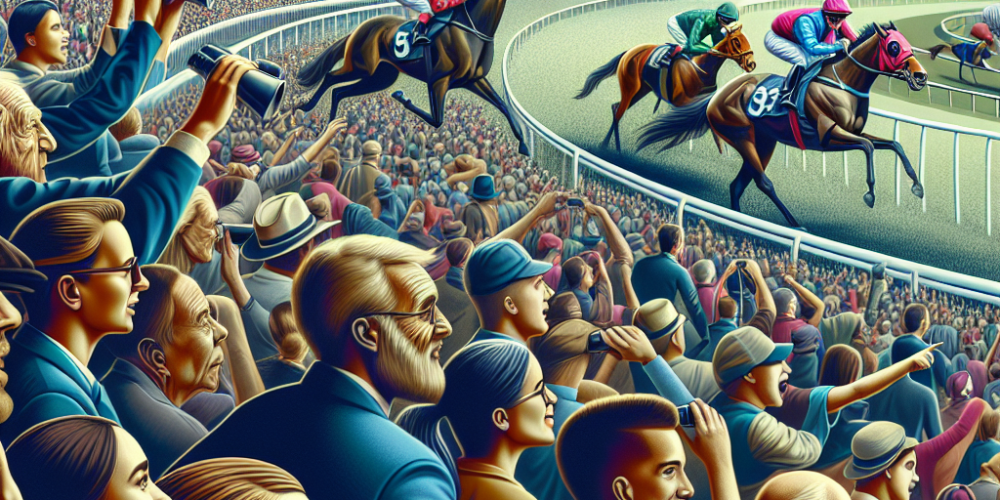The British Horseracing Authority (BHA) unveiled insights from its comprehensive Project Beacon study on September 4, 2025, aiming to decode the prevailing trends among fans and their perceptions of the sport. This landmark research, heralded as the most exhaustive customer analysis in the history of British horseracing, gathered input from over 7,500 participants across the UK and Ireland, thus ensuring that it truly reflects national sentiments towards horse racing.
Key findings from the study revealed that around 25 million adults in the UK and Ireland have a propensity towards horseracing, indicating they do not outright reject the sport despite not currently engaging with it. Of this number, a striking 17 million individuals have been identified as potential or casual fans. This demographic encapsulates a spectrum of interest levels within the “open to racing” group, including “open-minded rookies,” who show a budding interest in the sport, “social stakers,” who engage due to the social aspect of betting, and “event lifters,” who enjoy attending large-scale racing events.
Furthermore, the study delineates a core audience of about 9 million avid enthusiasts comprising serious bettors, event lifters, and racing experts—individuals who already have a significant stake in the sport. Project Beacon underscores the critical need to retain this core audience while simultaneously converting the 7.1 million open-minded rookies and social stakers into more dedicated fans.
In light of the findings, the BHA has committed to addressing several public concerns, notably the welfare of horses involved in racing. This concern has been a prevailing issue, with many suggesting that the emotional connection to horseracing often hinges on public perceptions of animal welfare. The BHA has thus vowed to implement substantial improvements in various key areas to enhance the overall appeal and understanding of horseracing.
Initiatives under consideration include enhancing raceday experiences, developing superior betting products, and making horse ownership more accessible. Additionally, the BHA plans to focus on raising awareness about the critical role of horse welfare in the sport. They also aim to simplify the sport for newcomers and adopt a more cohesive approach to storytelling, thereby fostering stronger emotional connections with the industry at large.
To further these goals, the BHA is in the process of establishing a Project Beacon delivery office, which will prioritize tasks, allocate resources, and oversee the execution of these improvements. At the same time, the BHA acknowledges the significance of existing initiatives that have already bolstered the horseracing sector. These include the “Going is Good” campaign, the HorsePWR initiative, and efforts by Great British Racing, alongside other programs like Premier Racedays designed to elevate the sport’s profile.
Despite these promising strategies, there are divergent views on the future of horseracing. Critics argue that the sport faces deeper challenges, such as competition from other entertainment forms and the need to modernize betting frameworks to cater to a digital-savvy audience. Some industry observers suggest that without addressing these broader issues, efforts to expand the fan base might not yield the desired long-term engagement.
On the other side of the debate, proponents of the BHA’s approach believe that the thorough analysis provided by Project Beacon offers a robust foundation for rejuvenating interest in horseracing. They assert that by focusing on improving the spectator experience and ensuring ethical practices, the sport can not only draw in new fans but also instill a sense of loyalty and passion in current enthusiasts.
The BHA’s recent moves, including the strengthening of its team with new appointments, signal a proactive stance in tackling these multifaceted challenges. As the organization seeks to implement the insights gained from Project Beacon, its success will likely depend on its ability to adapt and respond to the evolving preferences of both existing and potential racing fans.
Ultimately, the future of British horseracing may well hinge on the BHA’s capacity to harmonize tradition with innovation, ensuring that the thrill of the race continues to captivate audiences for generations to come. As one industry insider reflected, the appeal of horseracing lies in its unique blend of history, sport, and social engagement—a combination that, if harnessed correctly, could secure the sport’s place in the modern entertainment landscape.

David Garato is a luminary in gaming journalism, renowned for peeling back the curtain on the gaming world with his witty and insightful commentary. A decade into weaving stories from the pixelated edges of indie games to the expansive universes of AAA titles, David’s work is a thrilling blend of analysis and adventure. When not writing, he’s live-streaming, sharing his gaming exploits with an engaged and growing audience. David doesn’t just write about games; he lives them, making him a trusted guide in the gaming community.
















